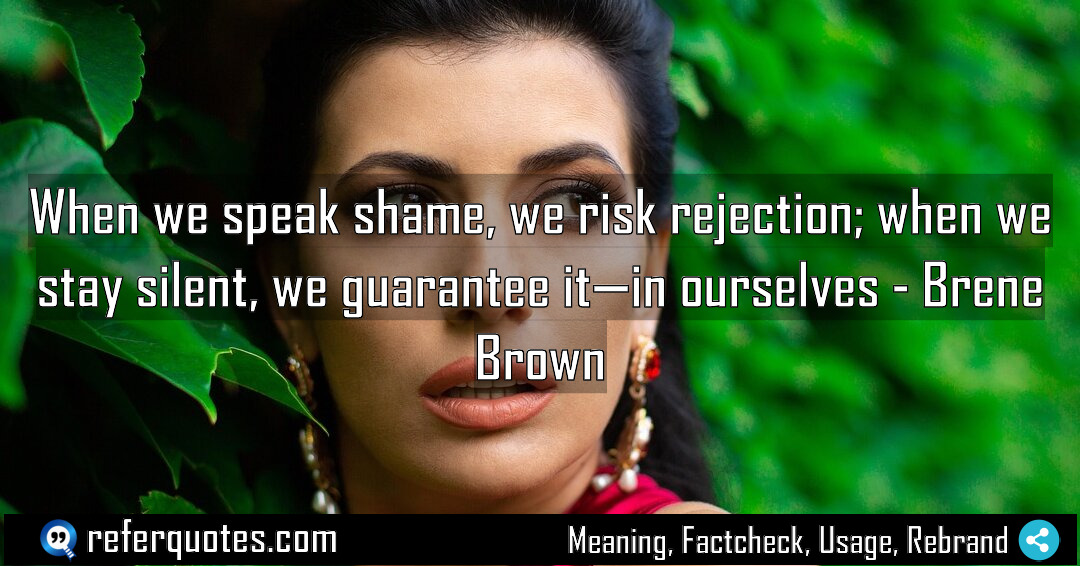When we speak shame, we risk rejection; when we stay silent… that’s the real gut punch from Brené Brown. It’s about how silence is a self-imposed prison, and speaking up, while terrifying, is your only way out. Let’s break down why this idea is so powerful.
Share Image Quote:Table of Contents
Meaning
At its core, this quote is a brutal but honest equation: speaking your shame is a risk, but silencing it is a guarantee of self-rejection.
Explanation
Okay, so here’s the thing I’ve seen play out time and again, both in my work and honestly, in my own life. We get this so backwards. We think, “If I just keep this to myself—this thing I’m ashamed of, this fear, this insecurity—I’ll be safe. I’ll protect myself.” But that’s the trap.
Silence isn’t a shield; it’s a cage. It’s the thing that whispers to you, “You are not acceptable. You are not worthy of being heard.” And you internalize that message. You start to reject the parts of yourself you’ve locked away. You guarantee your own isolation.
Now, speaking it? Man, that’s terrifying. Your heart pounds. You feel nauseous. Because you are risking a real, external “no.” But here’s the magic—and I mean this—the very act of giving voice to your shame robs it of its power. You realize that the story in your head is often so much worse than the reality. And even if you do face rejection, you haven’t rejected yourself. You showed up. And that self-respect? It’s everything.
Quote Summary
| Context | Attributes |
|---|---|
| Original Language | English (3668) |
| Category | Wisdom (385) |
| Topics | rejection (4), risk (54), silence (11) |
| Literary Style | balanced (59), punchy (9) |
| Emotion / Mood | sobering (17), urgent (23) |
| Overall Quote Score | 71 (53) |
Origin & Factcheck
This powerful line comes straight from Brené Brown’s 2004 book, Women & Shame: Reaching Out, Speaking Truths and Building Connection. It was born from her early, groundbreaking research on shame and vulnerability in the United States. You sometimes see her more famous quotes from later books and talks floating around, but this one is a foundational gem from her first major work.
Attribution Summary
| Context | Attributes |
|---|---|
| Author | Brene Brown (257) |
| Source Type | Book (4032) |
| Source/Book Name | Women & Shame: Reaching Out, Speaking Truths (39) |
| Origin Timeperiod | 21st Century (1892) |
| Original Language | English (3668) |
| Authenticity | Verified (4032) |
Author Bio
Dr Brene Brown is the author of books such as Daring Greatly and The Power of Vulnerability. The TED talk and Netflix production based on her research reached out to millions of audience. She researches effects of courage and vulnerability in shaping people's work and relationships. She leads the Brené Brown Education and Research Group and provides evidence-based insights into practical tools to help people train themselves
Official Website |Facebook | X | Instagram | YouTube |
Where is this quotation located?
| Quotation | When we speak shame, we risk rejection; when we stay silent, we guarantee it—in ourselves |
| Book Details | Publication Year: 2004; (other edition details unknown) |
| Where is it? | Approximate page from 2004 Hazelden edition, Chapter: Risks and Boundaries |
